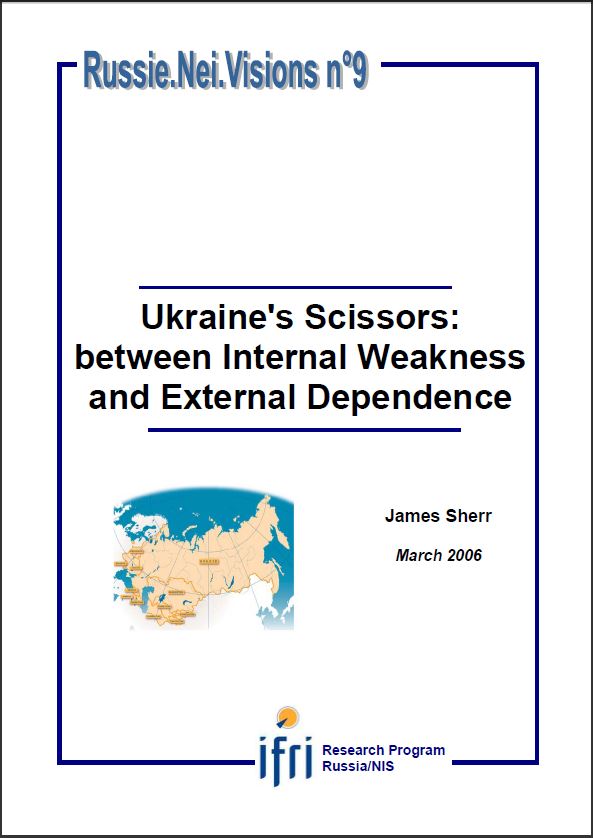Ukraine's Scissors: between Internal Weakness and External Dependence

Barely one year after the Orange Revolution, Ukraine finds itself in the midst of fresh internal and external dislocations. In one respect, the revolution promises to be enduring. Ukraine is a democratic country with a vigorous political life, and a return to state intimidation and political stagnation is no longer feasible. But the revolution has not fulfilled its central promise: the emergence of authorities who, finally, would govern in the interests of the country rather than themselves. With few exceptions, there has been no attempt to challenge the country's dysfunctional institutional inheritance or replace the culture of patronage with meritocracy. This failing has not only created new internal cleavages, but reopened old international vulnerabilities. The Russian Federation has recovered from its post-orange disorientation and is governed by an elite confident that the country's wealth and energy resources can be used to create a 'sphere of predominance' on the doorstep of the EU. Russia's gas diplomacy in Ukraine, a key corridor to European consumers, reinforces the EU's broader stakes in Ukraine's capacity and trajectory. Without indulging Ukraine's illusions about EU membership, the EU needs to develop channels of integration that are both realistic and mutually beneficial.
Download the full analysis
This page contains only a summary of our work. If you would like to have access to all the information from our research on the subject, you can download the full version in PDF format.
Ukraine's Scissors: between Internal Weakness and External Dependence
Related centers and programs
Discover our other research centers and programsFind out more
Discover all our analysesRussia, the Palestinians and Gaza: Adjustments after October 7th
The Soviet Union (USSR), and subsequently the Russian Federation as its internationally recognized legal successor, has consistently sought to play a visible role in efforts to resolve the Israeli-Palestinian conflict.
Deathonomics: The Social, Political, and Economic Costs of War in Russia
The report attempts to outline and examine a truly new phenomenon in Russian society, dubbed “deathonomics”—the making of a mercenary army against the backdrop of the Kremlin’s war in Ukraine, eventually replacing both the Soviet (conscript) and early new Russian (contract) armies. It notes that, by the end of 2023, this trend had turned the military service into one of the highest-paying professions in the country, something not seen in Russia on such a scale since the late 17th century.
Russia's Asia Strategy: Bolstering the Eagle's Eastern Wing
Among Russia’s strategic priorities, Asia traditionally played a secondary role compared to the West. In the mid-1990s, then Foreign Minister Yevgeny Primakov initiated a rapprochement with China and India. Then, in 2014, deteriorating relations between Russia and the West prompted Moscow to begin its “great pivot to the East”.
Kazakhstan After the Double Shock of 2022: Political, Economic and Military Consequences
The year 2022 represented a dual shock for Kazakhstan. In January, the country faced its most severe political crisis since independence, followed in February by Russia’s full-scale invasion of Ukraine, which cast uncertainty over the borders of post-Soviet states. These consecutive crises profoundly shaped Kazakhstan’s domestic and foreign policy.











